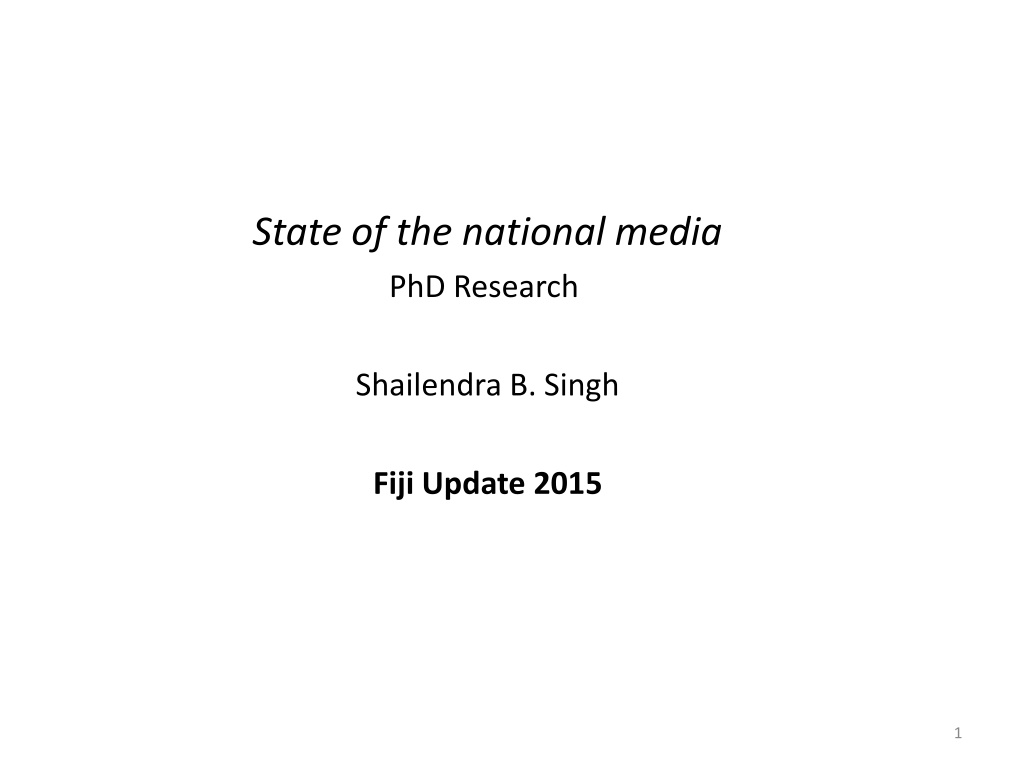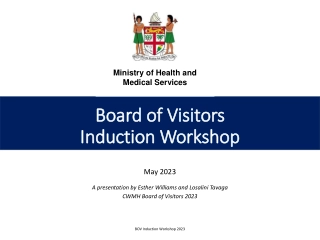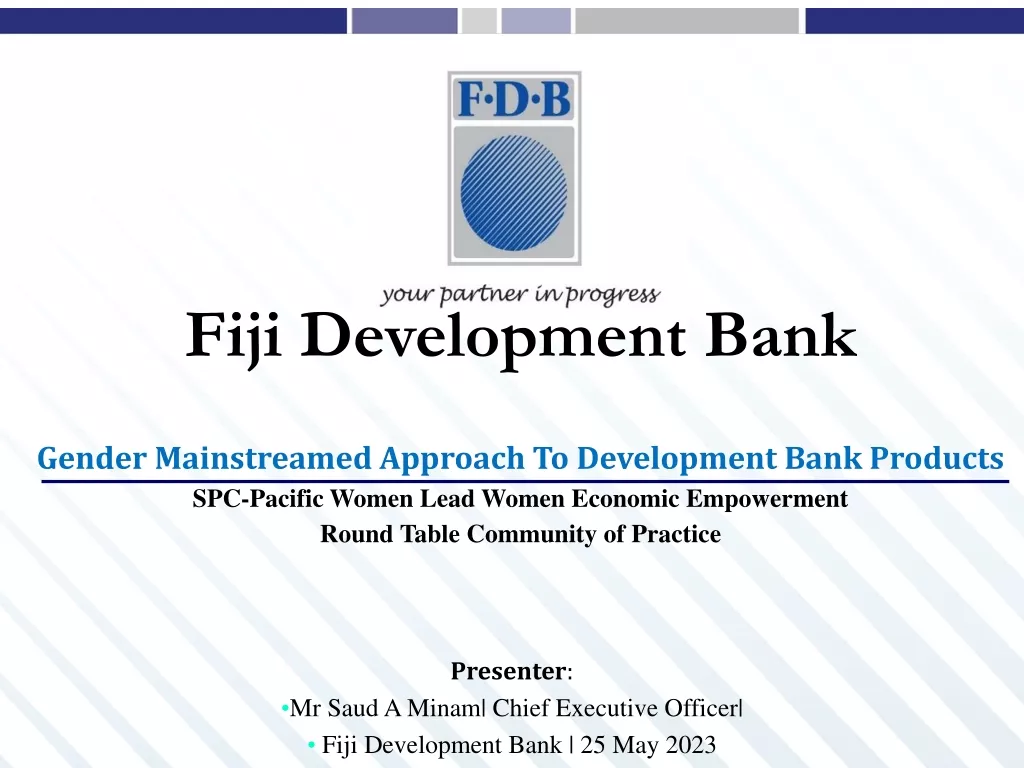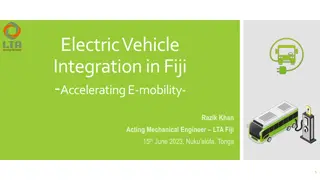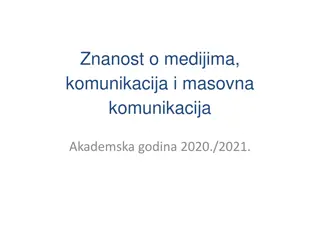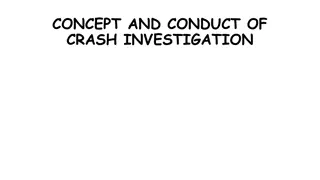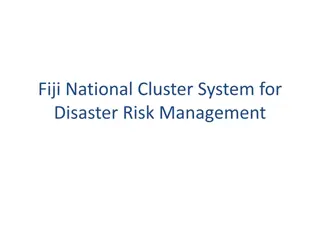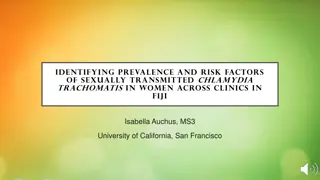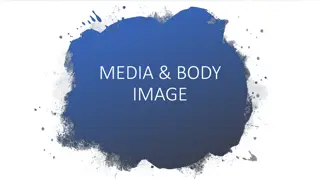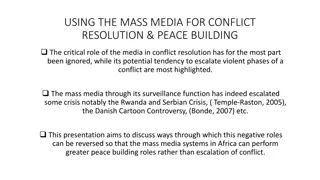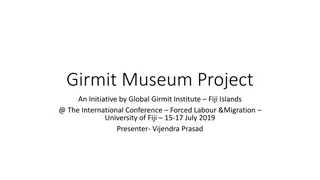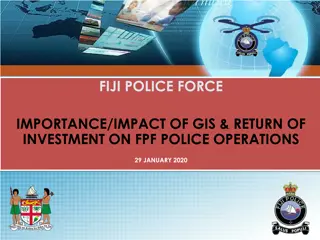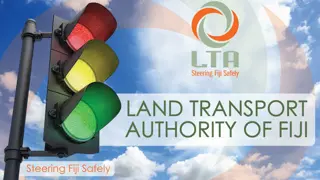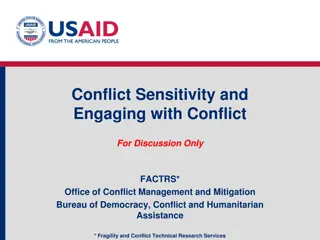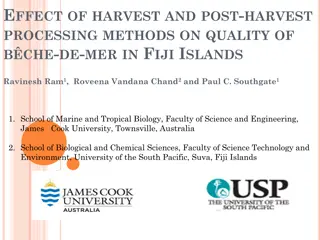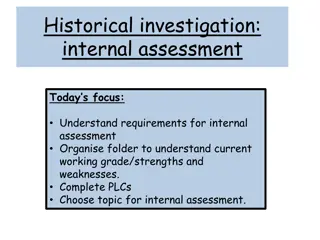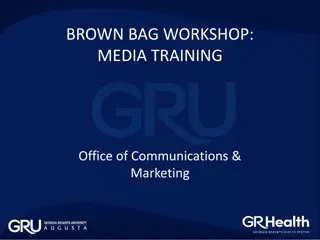Media Landscape in Fiji: An Investigation into Representation and Conflict
PhD Research by Shailendra B. Singh in 2015 examined the state of the national media in Fiji, focusing on allegations of misrepresentation and conflict instigation. The study encompassed content analysis, journalist surveys, and a review of media ownership and laws, revealing insights on media professionalism, political influence, and the need for in-depth reporting.
Download Presentation

Please find below an Image/Link to download the presentation.
The content on the website is provided AS IS for your information and personal use only. It may not be sold, licensed, or shared on other websites without obtaining consent from the author. Download presentation by click this link. If you encounter any issues during the download, it is possible that the publisher has removed the file from their server.
E N D
Presentation Transcript
State of the national media PhD Research Shailendra B. Singh Fiji Update 2015 1
Contextualizing the problem Investigated allegations that Fiji media misrepresent , inflame conflicts Conflict critical security issue, with coup-prone Fiji caught in a cycle of prolonged instability and stagnation Decline permeates virtually all levels of society Stakes are high Govts habitually accuse media of causing strife to justify censorship 2
Research questions and subsequent methodology Research Question Methodology 1. Are the Fiji media inflammatory, as often alleged? Content analysis of print media coverage of 2006 elections 2. What is the level of journalist professional capacity/diversity in Fiji? Surveyed journalists at 10 media companies: N=72 (63%) 3. What are the genesis and nature of media law in Fiji? Document review 4. Nature of media ownership & link with political/economic power? Document review Questions link media content with media structure: the foundation on which content is created is the national media landscape 3
The results in a nutshell Research Question Result 1. Are the media inflammatory? Not according to 2006 elections coverage controversial issues reported in balanced manner 2. Level journalist professional capacity? Age: 31 yrs (global, 36-53yrs); Exp: 7yrs (31% < 3yrs exp) Qualifications: 49% Power imbalance favours Govt as the regulator over the media as the Fourth Estate 3. What are the genesis and nature of media law in Fiji? 4. Nature of media ownership & link with political/economic power? De-concentration laws spawned a politico-corporate oligarchy. Given rise to major political economy concerns 4
Some observations/inferences content analysis Partial explanation for content analysis findings rooted in the 2000 coup. Media were roundly criticised for the alleged racial nature of reporting. A chastened media likely moderated coverage of the 2006 elections. Also, election candidates heeded military warnings not to inflame tensions. Most importantly, content analysis showed alarming lack of in-depth reporting. Most election articles dealt with political rhetoric & logistical matters. Socio-economic issues yielded just 13% of the content, with inconsequential logistical matters taking priority. Example:On the elections eve, a p.3 lead was devoted to theft of $6000 in polling clerk wages. Content analysis suggests that superficial reporting a bigger concern than inflammatory reporting. 5
Some observations/inferences questionnaire survey Youthful journalist corps indicative of high journalist attrition in Fiji. Attrition linkable to lack of career progression, remuneration. Example: Survey shows career satisfaction levels at 61%; remuneration at a lower 39%. So most journos satisfied with career; not necessarily with remuneration. Lack of newsroom capacity and in-depth reporting symptom of journalist attrition On a macro-level, journalist attrition linked to Fiji s coup-culture and punitive media legislation 6
Profile Typical Fijian Journalist Gender Male Ethnicity Indigenous Fijian Mean Age 31 yrs (global, 36-53 yrs) Experience 7 yrs Religion Christian Training On the job Academic qualifications None Triangulate content analysis results with survey questionnaire: Young, inexperienced, under-qualified, journalist corps shying from complex stories, hence the lack of depth in reporting Is punitive legislation addressing these structural problems? 7 7
Document review media legislation Media hamstrung by Section 22: Bars any content against public interest or order; the national interest; or creates communal discord . Provision is ill-defined, sweeping, open to interpretation by Govt. Ethical breaches criminalised punishable by steep fines or jail terms. Complaints procedure stacked against media companies can be liable for $100k in damage to aggrieved parties. Editors personally liable $25k; reporters $1k. 8
Private Ownership State Ownership Fiji Sun owner CJ Patel - 20 subsidiaries in various sales/manufacturing sectors Fiji Times owner Motibhai - 6 subsidiaries in various sectors Media owners corporate entities with wider investments more valuable than their media assets Investments vulnerable to Govt policies, which can cause greater financial harm than media profits are worth Media owners beholden to Govt Govt most powerful actor in the media sector Major proprietor FBC 100%; Fiji TV 51% through FHL Govt a major advertiser Power to formulate media legislation Implement policies impacting on investments of media owners in other business sectors 9
Conclusion/recommendations Lack of in-depth reporting bigger issue than inflammatory reporting. Superficial coverage reflects lack of journalist capacity. Capacity deficit is blameable on high journalist attrition. Attrition attributable to lack of incentives, Fiji s coup culture and a punitive media law. Punitive law does not address structural problems - journalist flight; lack of training/qualifications; working conditions; superficial reporting; and compromised ownership structure. The law arguably aggravates these problems. Laws should be reconsidered. Self-regulation should be revisited under a properly reconstituted Media Council. Salary wise, media companies cannot compete - incentives like fellowships/scholarships should be considered. Research provides strong empirical validation for greater focus on training & development gratuitous efforts on regulation is misguided, even unwarranted. 10
